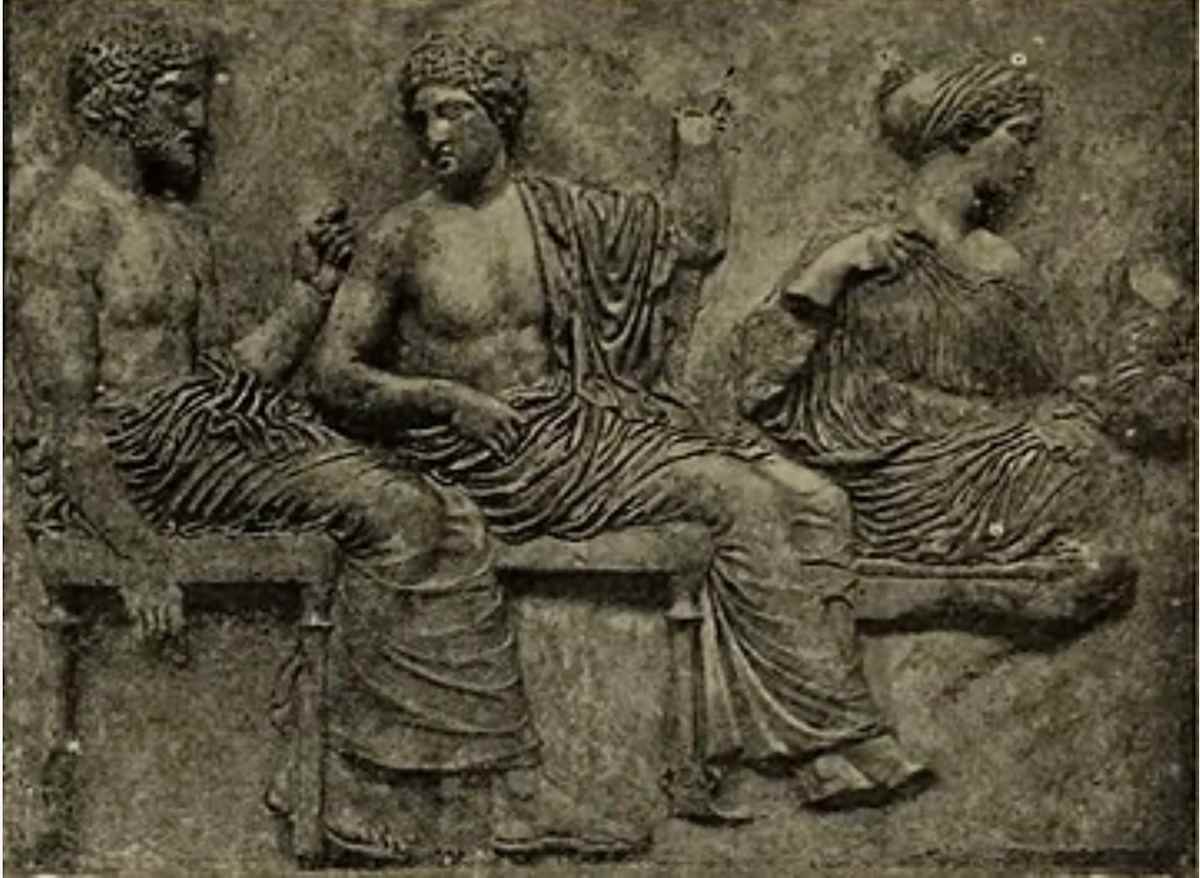Hellen (Ἕλλην) was the forefather of the Hellenes. He was said to be the son of either Deucalion or Zeus and Pyrrha.
Hellen had three sons: “Dorus, Xuthus, and Aeolus,” and each of his sons were said to have established a primary tribe of Greece.
Dorus ... maybe the Dorians had been named after him,
wondered Maria.
After researching, she found that Dorus’s (Δῶρος) name was derived from “doron” or “gift.” Dorus was considered the founder of the Dorians who were one of the four major ethnic groups into which the Hellenes of Classical Greece divided themselves, along with the Aeolians, Achaeans, and Ionians.
The earliest literary mention of the Dorians was in the Odyssey, where it was mentioned that they inhabited the island of Crete.
Regarding Xuthus (Ξοῦθος), the other son of Hellen, Maria found that he was a Phthian prince who became a king of the Peloponnese. According to Greek mythology, he was the ancestor and founder, through his sons, of the Achaean and Ionian nations.
Very ancient indeed. Maria had not previously encountered a King Xuthus of the Peloponnese in her research.
The Hellenes were an archaic ethnic group and nation indigenous to the Eastern Mediterranean and the Black Sea regions, namely Greece, Cyprus, Albania, Italy, Turkey, Egypt, and, to a lesser extent some other countries surrounding the Mediterranean Sea.
However, although Greek colonies and communities were established on the shores of the Mediterranean and the Black Seas, the Greek people themselves were centered mainly on the Aegean and Ionian seas.
Even today, the Greeks refer to themselves as Hellenes (Έλληνες), using their ancient name, and call their country Hellada (Έλλάδα), instead of using the Roman-origin names of Greeks and Greece.
At ancient times the term Graecus which was derived from the Latin word Graecians, was used to refer to “the Hellenic people living westwards of Hellada.”
This was also mentioned by Homer.
Excerpt fro ‘Artemis Child: a Rain of Stars’ second book of the Peloponnese series:
📸 Image from the Cella Friese of the Parthenon. (Acropolis Museum.)
